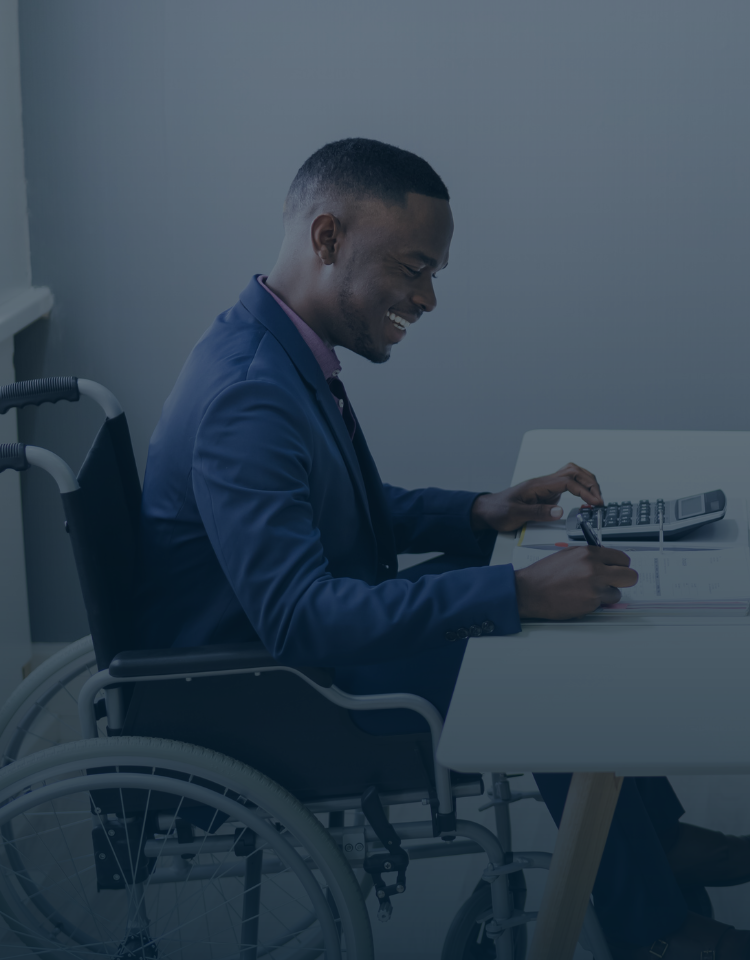By Aidan Vining and Mandeep Tamber, Student-at-Law
At McLeish Orlando, our personal injury lawyers often represent individuals who have suffered catastrophic injuries and are experiencing significant changes in their lives. These changes may be physical, psychological, cognitive, or a combination of the three. To assist with these changes, we often recommend our clients make use of assistive technology and devices to assist with managing their symptoms.
Assistive technologies and devices refer to anything that can help a person who has been injured live their life in a manner as similar as possible to the way they lived prior to the sustained injury. Common types of low technology assistive devices include wheelchairs, crutches, canes, and walkers. As technology has advanced, many assistive technologies have been developed that can make your life easier. This blog aims to provide insight into some of those devices.
Computer Accessibility
Many of our clients experience difficulties using computers due to light sensitivity, screen fatigue, headaches, and impaired concentration. Below are some assistive technologies that can make using a computer easier:
- Screen Reader Software: this software will convert digital written text into audio speech that you can listen to rather than read.
- Voice Recognition Software: similarly, this software allows users to control computers and devices using voice commands, as well as convert speech into written digital text.
- Display Adjustment Software: this software can change the colour of your computer’s display in order to reduce eye strain and light sensitivity.
Memory Devices
If you have difficulties with your memory, there are many technologies that can help keep you organized:
- Digital Planners and Calendars: this software can help you keep track of appointments and personal plans from any location. You can also set up reminders and notifications to ensure you remember important events.
- Smart Watches: smart watches can be a helpful tool to set reminders and keep track of important items. For example, if you take medication, you can set a scheduled reminder that will notify you wherever you are.
- Talking Clock / Calendar: this software will announce the time and events out loud.
Vehicle Modifications and Assistive Technology
As we wrote about in our Brain Injury Awareness Month: Driving After a Traumatic Brain Injury blog, driving assessments and driver rehabilitation programs may also include the use of assistive devices.
Various assistive devices and tools exist to help individuals with brain injuries get back to driving, so they can lead more functionally independent lives. Adaptive equipment technology includes devices to help manage speed, electronic memory aids, and devices to help drivers remain focused while on the road.
Additional assistive vehicle modifications include hand controls that allow individuals to drive without traditional foot pedals, and wheelchair accessible vehicles to accommodate individuals with mobility devices.
How We Can Help
Our team of skilled personal injury lawyers, accident benefits specialists, and tort clerks have over 25 years of experience assisting people with disabilities and severe injuries. We will work with your rehabilitation team to determine the assistive devices most suited for your lifestyle. We also work to ensure the expenses involved with these devices are covered by your insurance company or are recovered as a part of your personal injury lawsuit compensation.
If you or a loved one have been injured as a result of the negligence of another person, please contact our office for a free consultation to discuss your options. More information about assistive technology options available can be found at the Brain Injury Canada website.





